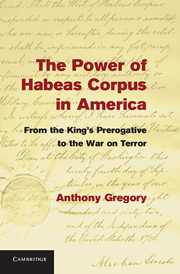A controversy in Eugene, Oregon, over whether to recite the Pledge of Allegiance before city council meetings has revived this tired culture-war issue once again. Liberals have long criticized the Pledge, especially its phrase, “under God.” Conservatives treat the pledge as sacred and condemn any attempts to alter the practice.
Most forget the Pledge’s origins. Leftists might take pride in the pledge, and many do, but those who cherish individual liberty should be much more skeptical. It was a socialist, Francis Bellamy, who authored the Pledge of Allegiance in 1892. The goal was to inculcate immigrants and children in the civic religion of nationalism, to unify the classes, and to promote the state above the individual.
Bellamy was also behind the push to put flags in every school. His cousin, Edward Bellamy, wrote the utopian socialist novel Looking Backwards. They both believed the state should redistribute wealth equally among workers. Francis originally wanted the pledge to echo the French Revolution principles of “equality” and “fraternity,” but ultimately decided it would not catch on in America.
Bellamy’s revolution has mostly succeeded, although not always peacefully. In the 1940s, mobs lashed out at Jehovah’s Witnesses who dissented from the Pledge, seeing it as idolatrous. At first, the Supreme Court even upheld involuntary recitations in America’s classrooms, before reversing itself in 1943, finding that forced renditions amount to an unconstitutional “compulsory unification of opinion.”
The collectivist, un-American legacy of the Pledge has been sugarcoated through modifications of the original practice. The United States abandoned the “Bellamy salute”—the gesture devised by Bellamy to accompany the pledge. It involved stretching one’s arm upward toward the flag. School kids across America used to perform this ritual before its similarities to the Nazi salute in the 1940s rendered the gesture untenable. So it was replaced with the simple hand on the heart.
During the Cold War, fear of atheistic Communism inspired the Eisenhower administration to insert “Under God” into the Pledge. Much of the controversy since has been over these two words, but whether the U.S. government is seen, as some liberals see it, as a replacement for God, or, as some conservatives see it, as an extension of God’s will, it is the general meaning of the rest of the Pledge that is most troubling.
The Pledge is, after all, a promise of loyalty to the republic—to the U.S. government—not only so long as it obeys the constitution and fulfills its obligations to the people, but simply as a matter of course. The government is described as “indivisible,” a notion completely at odds with the ideal that the government’s existence depends on the consent of the governed, and that when it becomes tyrannical the people have a right to alter and abolish it—the very principles articulated in the Declaration of Independence and that animated the American Revolution.
The United States began as a limited constitutional republic. The federal government had a few enumerated powers, but most matters—charity, religion, health care, agriculture, civil infrastructure, immigration, morality, commerce, and criminal justice—were left to the states, communities, and private sector. With the Civil War and especially the advent of the 20th century, a national leviathan grew. Most of what conservatives today claim to oppose in Washington, DC, came about as the national culture abandoned the constitutionalism of early America to embrace the Old World principles of national militarism, social democracy, and the welfare state.
This abandonment of early American principles has coincided with collectivist lessons being taught in public schools. But this hardly began with Obama, or even Clinton or LBJ. It began over a century ago, with such socialist traditions as the Pledge of Allegiance.
A pledge of allegiance better fits a totalitarian regime like North Korea than any nation deemed the land of the free. Those who reject the Pledge are on the side of America’s founding principles of liberty and constitutionally limited government, whether or not they know it. Those who put it on a pedestal are unwittingly embracing an alien ideology of nationalist statism.









